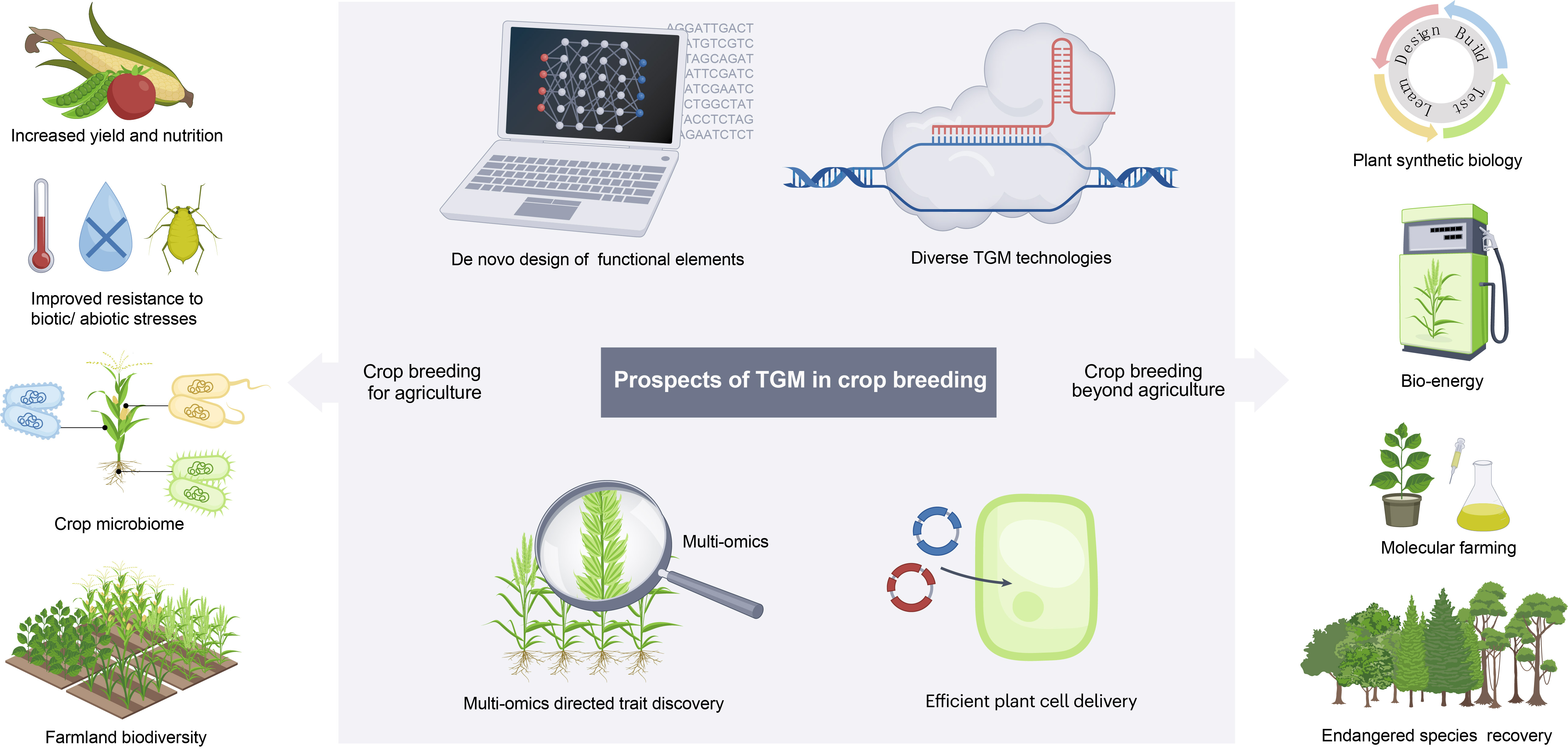Chinese Academy of Sciences
Modern crop breeding is entering a new era of genome design, led by genome editing technologies as mainstream tools for targeted genome modification.
In a review published in Nature Reviews Genetics, Dr. GAO Caixia from the Institute of Genetics and Developmental Biology of the Chinese Academy of Sciences has described the current progress of the technical innovation in editing tools, the development of superior delivery methods as well as their advanced applications in crop breeding.
Targeted genome modification technologies have revolutionized crop breeding methods and significantly improved breeding efficiency. Understanding the basic principles of targeted genome modification tools and the iterative strategies involved in employing them is essential for their application in crop improvement.
In this review, GAO's team systematically introduced various genome editing tools, ranging from single base editing to manipulation of DNA fragments exceeding kilobases. In particular, the team focused on summarizing the latest advances in precise genome editing technologies, including base editing, prime editing, and precise manipulation tools for large DNA fragments. These precision tools are expected to become critical foundational technologies for future crop research and breeding applications.
Traditionally, genetic improvement of crops has been limited not only by the precision and scale of genetic manipulation tools but also by challenges such as the low efficiency of plant cell delivery and regeneration. This review describes the current delivery methods used in plant genome editing, with an emphasis on techniques that bypass the need for tissue culture or transgene integration, thus helping to overcome delivery bottlenecks.
The researchers presented a comprehensive overview of the transformative role of targeted genome modification tools in modern crop breeding, from generating novel elite alleles to revolutionizing crop breeding technologies. They also noted that the future development and potential applications of targeted genome modification tools are highly anticipated in crop breeding.
GAO's team also proposed possible future directions for genome editing research, envisioned various scenarios for precise targeted modification of plant genomes, and discussed potential challenges in the application of genome-edited crops. These insights will contribute to new perspectives and considerations for the future application of targeted genome modification technologies in crop breeding.
This work was supported by the National Key Research and Development Program, the National Natural Science Foundation of China, the Ministry of Agriculture and Rural Affairs of China, and the New Cornerstone Science Foundation.

Prospects for TGM technologies in crop breeding. (Image by GAO Caixia)
/Public Release. This material from the originating organization/author(s) might be of the point-in-time nature, and edited for clarity, style and length. Mirage.News does not take institutional positions or sides, and all views, positions, and conclusions expressed herein are solely those of the author(s).View in full here.






